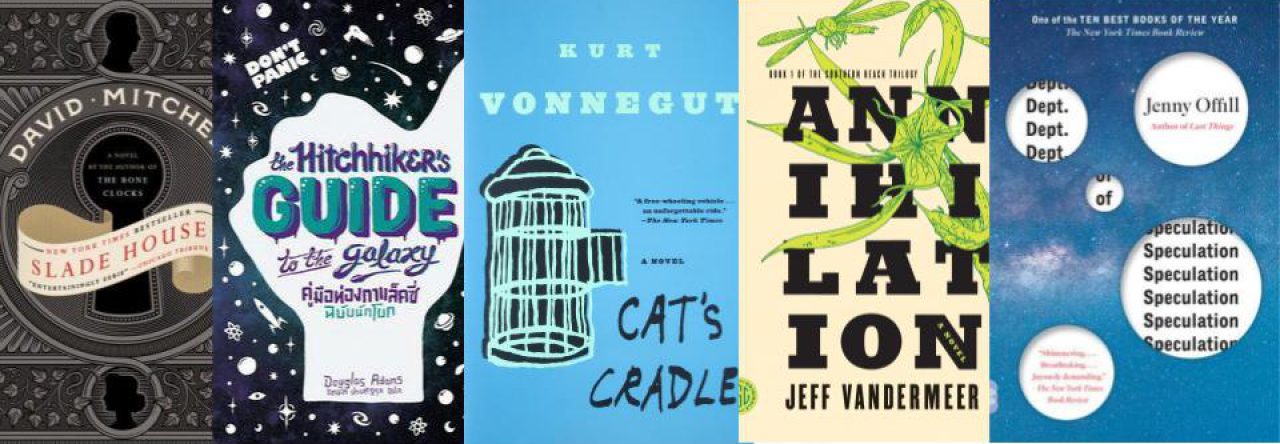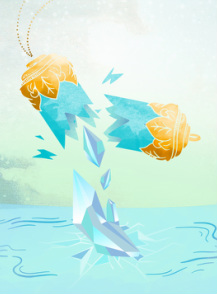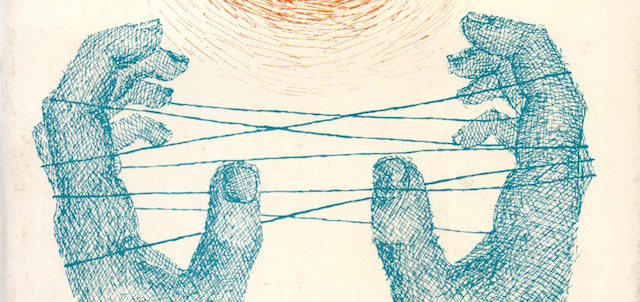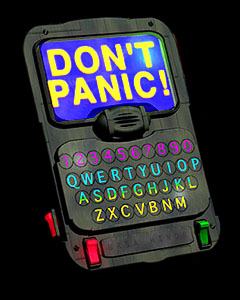Dept. of Speculation – Blog One
Of the books we have read so far, Dept. of Speculation by Jenny Offill is the most vague, yet painfully specific narrative. The story follows a woman, that calls herself the Wife (95), and the beginning and possible end of her family unit. In the first few chapters we read as she falls in love, gets married, and has her first child.

The Wife tells her story in bursts and jumps sprinkling in seemingly disconnected facts or quotes. The epitaph says “Speculators on the universe…are no better than madmen” which is a quote from Socrates. To open a book called Dept. of Speculation, this quote immediately makes me think that the narrator finds herself to be some kind of madman. Or at least her speculation is driving her somewhat mad.
I found this book extremely easy to read. The short paragraphs and seeming random nature of outside information only kept me reading. I sat down to read just a few pages to get a feel for the story and I found myself halfway through without even trying. I thought then, I was already halfway there. The narrator resonated with me. She has a dual nature, two perfectly opposite desires, one never possible if the other is true. This contradictory nature is something I believe I fight with.
She struggles with what she once wanted from life, and what her life has become. On page eight she says “I was going to be an art monster instead.” In the past she never wanted to get married and have children but by chapter 12 she’s done both of these things. But also, she no longer knows what she wants, or why she isn’t satisfied with what she has.
What do you want? I don’t know.
What do you want? I don’t know.
What seems to be the problem? Just leave me alone” (39).
The narrator can not rectify that she is a wife and mother, working a job that the husband would probably call “only vaguely soul-crushing” (34) if the roles were reversed. The narrator also says that someone asks her about her second book (38) which isn’t written yet. Another thing she’s had to give up so far.

I think mostly, the narrator is struggling with herself in these first few chapters. If she was an art monster who didn’t care for mundane things (8), then she would have never known the laughter of her daughter (32), but by giving up that part of her she loses a light that shines within (30). Then again, by giving up being that monster she can be apart of a society that thinks she is doing all the right things, but by being a part of this society she fades, becoming one of the mothers who do not show up early (42).
This progression is the start of the novels network of controlling values. These values can be found throughout the novel, but specifically in the in first 12 chapters. A controlling value for any given person is a cultural narrative their life follows. People will see any event or action through the lense of their own controlling values. This is how people with opposing views will always think their way is right even when given evidence that may prove the opposite. Controlling values are at the base of all judgments and projections. In Dept. of Speculation this is one of the dominant networks of controlling values that I found:
Controlling Values
Context: Being selfish and concerned only with oneself and the creation of art, one loses out on the biologically and societally driven happiness that having a family and children provide.
Purpose: By forgoing some personal desires and giving oneself fully to the life of family, one will be wholly rewarded in the delights of children and die knowing that they have left something behind to continue to grow and prosper.
Opposite Controlling Values
Context: By giving up agency to focus on having a family and following social norms, one loses the spark of originality and light that made them an artistic creator.
Purpose: Accepting that the creation of art takes sacrifice, one can be a greater asset to society by allowing themselves to break free of social norms and do what they were meant to do, create.

But even this seems to not encapsulate the whole story for the narrator. I wonder if she really gives anything up to continue creating. She has her family, and she has her second book, so to speak. She has gone through hardships and made sacrifices, but in the end it looks as if the only thing she truly loses is the city.
Yet still, she is never truly happy. Even she quotes “The third is an understanding of the unsatisfactory nature of ordinary experience,” while talking about the Buddhist’s three marks one must reach to attain wisdom (47). I think she may have discovered a kind of wisdom, but she feels “There is such a crookedness in my heart. I had thought loving two people so much would straighten it” (44). This is the conflicting nature the Wife lives in, not fully apart of either ideal, for both are perfect opposites to her.














 An agreement is struck every time I pick up a book. I am saying that I will try to read the text as it was meant to be read, and if I fail in this agreement I won’t enjoy the text as much as I could. This is me accepting my readerly role. I made this agreement when I picked up
An agreement is struck every time I pick up a book. I am saying that I will try to read the text as it was meant to be read, and if I fail in this agreement I won’t enjoy the text as much as I could. This is me accepting my readerly role. I made this agreement when I picked up 
 But what sort of values would this reading imply the reader adopt? Would it be the values my group and I found, or a different set? As Seitz pointed out, “rather, we ‘try on’ readings, envision the text through the eyes of various masks, all the while attempting to forecast what it proposes, ‘what it all adds up to’” (152). In other words, with this mask of old hitchhiker and guide researcher, the reader would want to know what it all means by reading with this frame, and would it end with a fulfilling culmination of events or the number 42? To this addressee, it wouldn’t matter. All they would want would be more information for the guide, the more outrageous and colorful the better.
But what sort of values would this reading imply the reader adopt? Would it be the values my group and I found, or a different set? As Seitz pointed out, “rather, we ‘try on’ readings, envision the text through the eyes of various masks, all the while attempting to forecast what it proposes, ‘what it all adds up to’” (152). In other words, with this mask of old hitchhiker and guide researcher, the reader would want to know what it all means by reading with this frame, and would it end with a fulfilling culmination of events or the number 42? To this addressee, it wouldn’t matter. All they would want would be more information for the guide, the more outrageous and colorful the better. I suspect that the narrator is a newer,
I suspect that the narrator is a newer,  So what does this mean for us, the fabled reader of the narrator addressing the addressee? The improbability of the whole story is what seems to win out in the end, and Arthur is left, homeless and adrift, but never alone. I think that we are like Arthur, swept up on this wacky, nonsensical journey. We can give ourselves over to the zany events because it is so far removed from daily life. No government official would lie in the mud in the place of someone else just because he’s already committed to waiting around all day, no one would seriously take poetry as a form of punishment (it would be a discomfort at most), and no one would really believe that mice are the
So what does this mean for us, the fabled reader of the narrator addressing the addressee? The improbability of the whole story is what seems to win out in the end, and Arthur is left, homeless and adrift, but never alone. I think that we are like Arthur, swept up on this wacky, nonsensical journey. We can give ourselves over to the zany events because it is so far removed from daily life. No government official would lie in the mud in the place of someone else just because he’s already committed to waiting around all day, no one would seriously take poetry as a form of punishment (it would be a discomfort at most), and no one would really believe that mice are the 